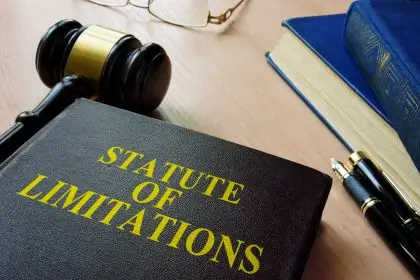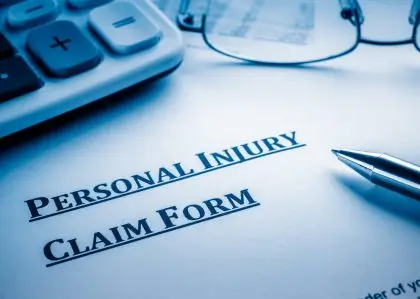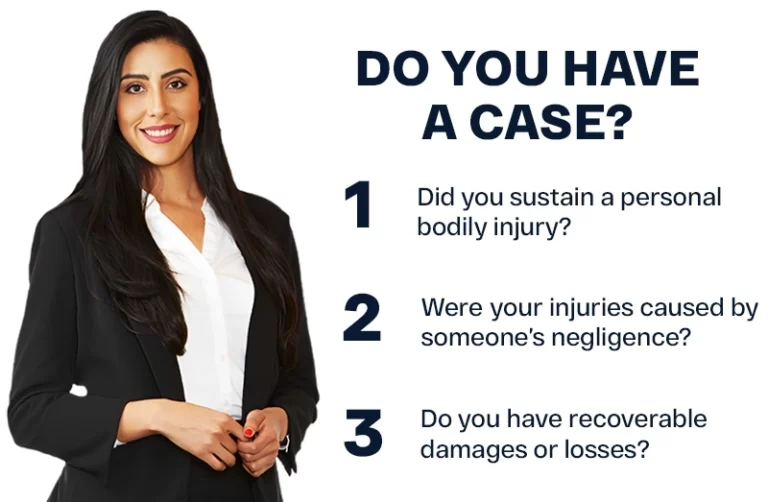STAT·UTE OF LIM·I·TA·TIONS
StaCHo͞ot əv limə’tāSHənz” (noun) LawA statute prescribing a period of limitation for the bringing of certain kinds of legal action.
Table of Contents
California law gives injury victims a limited time to file a legal claim. This is known as the “statute of limitations.” After the deadline has passed, the victim can lose the right to pursue compensation. This is why it is important to speak with a personal injury attorney after an accident. At Arash Law, our experienced California personal injury attorneys can help you understand the legal deadlines for your case and work to meet them. They can also assist with settlement negotiations and insurance company communications within the statute of limitations.
Schedule your consultation by calling (888) 488-1391. Our personal injury attorneys have helped many California injury victims understand their legal options.
What Is A Statute Of Limitations?
A statute of limitations is a law that limits the amount of time a party has to bring legal action. The length of time depends on the jurisdiction and the type of legal action.
For example, criminal statutes of limitations tend to be longer than those for civil cases. This allows prosecutors more time to find criminals and hold them accountable for their crimes. The most serious crimes, such as murder, may not have any statute of limitations. This is a matter of public safety.
Civil statutes of limitation tend to be shorter than those for criminal cases. That is why injury victims may want to consult with a lawyer after an accident. Once the statute of limitations has passed, the victim can no longer file a lawsuit against the defendant. This can happen even if they have a valid claim for compensation.
Why Is There A Statute Of Limitations On California Personal Injury Claims?
This rule can seem rather harsh. Shouldn’t victims be able to hold negligent defendants accountable for the injuries they cause? Though it might be harsh, there are reasons for having statutes of limitation. First, the law encourages everyone to bring their claims, including car accident claims, to court as quickly as possible. Unnecessary delays are to be discouraged. This helps the courts run more efficiently and prevents their dockets from becoming clogged with old cases.
California’s statute of limitations could also help maintain the validity of a victim’s case. Evidence tends to become weaker over time. Witnesses may forget details and will be less certain of the facts they do remember. Evidence can easily become destroyed or lost. Imagine a product liability case based on bad medication. As time passes, the packaging could easily become lost. The medication itself will age, and it could become more difficult to prove that it was tainted. What about a car accident? If a vehicle is totaled, it may eventually go to a scrap yard. Critical pieces of the vehicle could be lost. This might prevent the victim from proving that the defendant driver was at fault for the accident.
Fairness also requires that a defendant have the opportunity to defend the case. Delayed case filings mean that the defendant, too, loses access to critical evidence. So while it may seem harsh, the statute of limitations protects both plaintiffs and defendants. It also helps the courts run more efficiently. All of these are important things that keep our justice system running smoothly and fairly.
If you are unsure how the statute of limitations applies to your situation, car accident lawyers can explain how it may affect your ability to file a claim.
What Is A Personal Injury Claim?
A personal injury refers to legal harm suffered to a person’s body, mind, or emotions (as opposed to property or money). It can also include the wrongful death of a close family member. There are many types of personal injury claims. Some examples include:
- Auto accidents (including trucks, buses, Lyfts, Ubers, taxis, pedestrians, bicyclists, and motorcycle riders).
- Workplace accidents
- Nursing home abuse
- Daycare injuries
- Brain and spine injuries
- Wrongful death
- Amputations
- Paralysis
- Burn injuries
- Dog bites
- Construction accidents
- Accidents at amusement parks, event venues, and other attractions.
- Products liability
- Slip and fall accidents
What Is The Statute Of Limitations For California Personal Injury Claims?
Section 335.1 of the California Code of Civil Procedure sets the statute of limitations for California personal injury claims. This section requires any action for “assault, battery, injury to, or death of an individual” caused by the wrongful act or neglect of another to be brought within two years. This definition covers most personal injury cases. There are, however, other limits that apply to specific types of personal injury cases. Sections 312 to 366.3 of the California Code of Civil Procedure set forth other deadlines for the following types of cases:
- Property damage and trespass (3 years)
- Wrongful death (2 years)
- Wrongful birth (6 years)
- Defamation (1 year)
- False imprisonment (2 years)
- Fraud (3 years from the time it is discovered)
- Medical malpractice (1 year from the time it is discovered).
- Legal malpractice (1 year from the time it is discovered).
- Veterinary malpractice (1 year from the time it is discovered).
- Asbestos exposure (1 year from the time it is discovered).
- Breach of an oral contract (2 years)
- Breach of a written contract (4 years)
- Claims arising from being the victim of a felony (1 year from the time the defendant is convicted in a criminal court).
- Claims arising from the victim of certain serious felonies (10 years from the time the defendant is convicted in a criminal court).
Section 354.8 of the California Code of Civil Procedure specifies the serious felonies that qualify for the extended filing deadline of ten years. These are dramatic offenses, including:
- Torture
- Genocide
- War crimes
- Attempted extrajudicial killings
- Crimes against humanity (such as murder, extermination, enslavement, forcible transfer of a population, arbitrary detention, rape, and sexual slavery, or “other inhumane acts of a similar character intentionally causing great suffering, serious bodily injury, or serious mental injury”).
As you can see, these are dramatic crimes that only arise in the most serious and unusual circumstances. Most felony victims are subject to the one-year statute of limitations for bringing a civil lawsuit for personal injuries sustained during the commission of a felony.
Are There Any Exceptions?
Luckily for California personal injury victims, our state law does recognize some exceptions to the statutes of limitation. Imagine the deadlines as a stopwatch. An exception to the statute of limitations can either delay the time the stopwatch starts or pause the clock once it has already started to run. In either case, the final end date is delayed. This means that an injury victim has more time to file their claim with the court.
Here are some of the most common exceptions:
- Section 352(a) of the California Code of Civil Procedure stops the clock if an injury victim is either under the age of majority (eighteen years old) or lacks the legal capacity to make decisions. “Lacking legal capacity” can occur if a person has a brain injury or illness that prevents them from being able to understand and make important legal decisions. This capacity can be restored (if, for example, a person wakes up from a coma or receives medical treatment). Once the victim can make legal decisions (either due to a restoration of health or because he or she has turned eighteen), the clock begins again, and the statute of limitations begins to toll.
- Section 351 of the California Code of Civil Procedure also creates an exception when the defendant leaves the state of California after the accident, but before a lawsuit can be filed. The clock is stopped for as long as the defendant remains outside of California. Once they return, the statute of limitations begins to toll once again.
- Some injuries may not be discovered right away. Imagine, for example, that a construction worker was regularly exposed to toxic fumes and developed a lung condition as a result. The victim might not become aware of their job’s connection to the injury for years. Here, the law creates an exception where the injury victim could not reasonably have discovered the injury. The statute of limitations will not begin until the victim reasonably should have known about the injury. Notice, however, that the victim must be reasonable in discovering the injury. If there are signs that they ignore, the exception might not be available. As such, you may wish to seek legal advice as soon as you suspect there might be a legal claim for a personal injury.
What If The Defendant Is A Government Entity?
Special rules apply if the defendant is a government entity. Like most states, California requires injury victims to give special notice to the government before they file a lawsuit. More importantly, this notice must be given well in advance of the applicable statute of limitations. Without this notice, your claim cannot proceed against the government, even if you are within the statute of limitations.
Section 911.2 of the California Government Code requires notice to be given to the government within six months for claims of personal injury, wrongful death, or personal property or growing crops. Notice of other claims (such as breach of contract) must be filed within one year. The appropriate form must be filed with the Department of General Services. It must also be accompanied by a $25 fee (or an affidavit requesting a fee waiver).
There are a few exceptions to the notice requirement. These are listed in Section 905, and they include:
- Claims under the Revenue and Taxation Code for the refund, rebate, exemption, cancellation, amendment, modification, or adjustment of any tax, assessment, fee, or of any penalties, costs, or charges related thereto.
- Mechanic’s liens.
- Claims by public employees for fees, salaries, wages, mileage, or other expenses and allowances.
- Claims for which workers’ compensation (where it is the exclusive remedy allowed by the Labor Code).
- Applications or claims for any form of public assistance under the Welfare and Institutions Code or other provisions of law relating to public assistance programs, and claims for goods, services, provisions, or other assistance rendered for or on behalf of any recipient of any form of public assistance.
- Applications or claims for money or benefits under any public retirement or pension system.
- Claims for principal or interest on any bonds, notes, warrants, or other debts.
- Claims that relate to a special assessment constituting a specific lien against the property assessed.
- Unemployment claims for money or benefits, or refunds or credits of an employer or worker contributions, penalties, or interest, or for refunds to workers of deductions from wages.
- Claims for damages suffered as a result of childhood sexual abuse.
- Claims made under Section 49013 of the Education Code for reimbursement of pupil fees for participation in educational activities.
Once you have provided the required notice to the government, it has 45 days to respond to your claim. If the claim is denied, you only have six months to file a lawsuit. Pay careful attention to this date. It might be sooner than the statute of limitations. If the government does not issue a rejection letter, you can still file a lawsuit within the statute of limitations (up to two years from the date of injury). These deadlines for notice and filing a lawsuit can be complicated. To clarify them, you can consult with an attorney who can help you comply with the applicable time frames.
California Personal Injury Attorneys Who Understand The Statute Of Limitations
As you can see, the law surrounding statutes of limitations can get confusing. This is why you may want to speak with a personal injury attorney as soon as you become aware of a potential legal issue. Our California personal injury attorneys can explain how statute of limitations deadlines may affect your ability to pursue a claim. Call (888) 488-1391 or complete our “Do I Have A Case?” form for a free initial consultation.
Our firm operates on a contingency fee basis, meaning there are no attorney fees unless clients are able to collect compensation.










